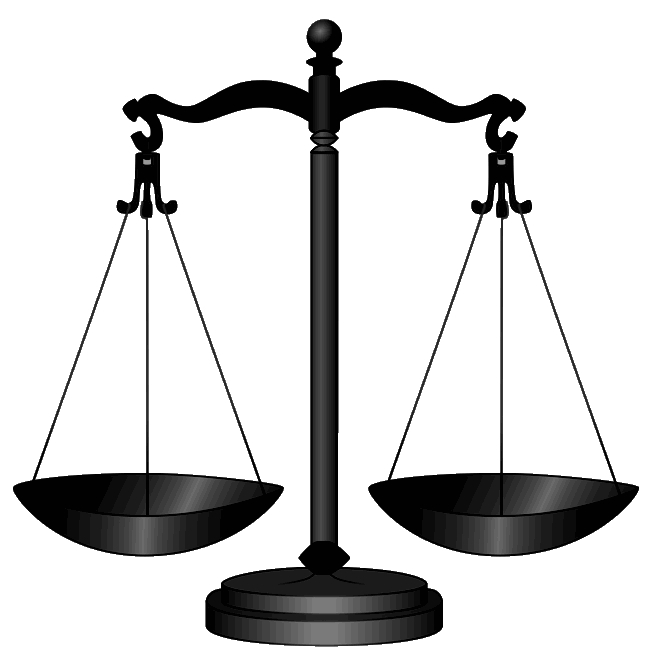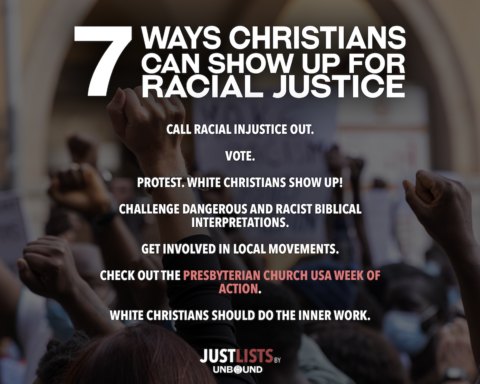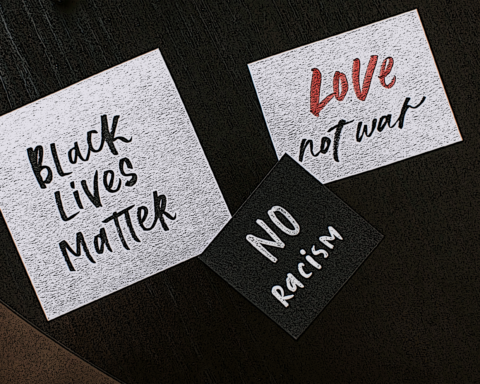
God created us as co-creators and consumers. We were made to seek things to consume: to eat, to drink, and to enjoy sex.
Psalm 104:14-15: You cause the grass to grow for the cattle,
and plants for people to cultivate,
to bring forth food from the earth,
and wine to gladden the human heart,
oil to make his face shine,
and bread to strengthen the human heart.
Song of Solomon 7:6-9: How fair and pleasant you are,
O loved one, delectable maiden!
You are stately as a palm tree,
and your breasts are like its clusters.
I say I will climb the palm tree
and lay hold of its branches.
O may your breasts be like clusters of the vine,
and the scent of your breath like apples,
and your kisses like the best wine
that goes down smoothly,
gliding over lips and teeth.
___________________________________________
Our current drug policy and drug war have failed to decrease drug use and addiction and have contributed further to violence and corruption. But most egregious is the unequal administration of justice.
___________________________________________
Jesus keeps the joy of the wedding feast going. After they run out of wine, he creates more. We know this miracle is a sign of the abundance of God’s grace in Christ, but it is also clear that God has given us things of the earth for consumption, relaxation and celebration.
 Often, however, consumption becomes a problem. It isn’t necessarily the thing itself – wine, for instance – that is bad, but how we allow it to influence who we are and what we do. A Christian biblical ethic is concerned with maturity of relationship with God and other people; anything that inhibits us from growing into the persons God would have us be is a problem.
Often, however, consumption becomes a problem. It isn’t necessarily the thing itself – wine, for instance – that is bad, but how we allow it to influence who we are and what we do. A Christian biblical ethic is concerned with maturity of relationship with God and other people; anything that inhibits us from growing into the persons God would have us be is a problem.
At St. John’s we have multiple recovery groups: Alcoholics Anonymous (AA), Narcotics Anonymous (NA), Overeaters Anonymous (OA), and Adult Children of Alcoholics (ACA). In these and other twelve step groups, people give testimonies as they seek freedom from a habit that has destroyed jobs, family, and their own self esteem.
Step 1 of the twelve steps is to admit we were powerless.
Step 2 is come to believe that a Power greater than ourselves can restore us to sanity.
Galatians 5 begins: For freedom Christ has set us free. Stand firm, therefore, and do not submit again to a yoke of slavery.
Effective drug policies will seek to help people and families be free.
Proverbs 20:1: Wine is a mocker, strong drink a brawler;
and whoever is led astray by it is not wise.
The proverb doesn’t say that wine is bad, rather that we may be led astray by it into mockery and brawling, which are bad.
___________________________________________
A Christian biblical ethic is concerned with maturity of relationship with God and other people; anything that inhibits us from growing into the persons God would have us be is a problem.
___________________________________________
By far the most common condemnation of consumption in the Bible is when it takes place at the expense of others. When we consume the expense of justice, we indulge and gorge ourselves in hedonistic pleasures as a part of a lifestyle that first exploits and then neglects the needs of the poor.
 Isaiah 5:7-12: For the vineyard of the Lord of hosts
Isaiah 5:7-12: For the vineyard of the Lord of hosts
is the house of Israel,
and the people of Judah
are his pleasant planting;
he expected justice,
but saw bloodshed;
righteousness,
but heard a cry!
Woe to those who join house to house,
who add field to field,
until there is room for no one but you,
and you are left to live alone
in the midst of the land!…
Woe to those who rise early in the morning
in pursuit of strong drink,
who linger in the evening
to be inflamed by wine
whose feasts consist of lyre and harp,
tambourine and flute and wine;
but who not regard the deeds of the Lord,
or see the work of his hands!
Our current drug policy and drug war have failed to decrease drug use and addiction and have contributed further to violence and corruption. But most egregious is the unequal administration of justice.
Proverbs 20:10: Diverse weights and diverse measures
are both alike an abomination to the Lord.
___________________________________________
By far the most common condemnation of consumption in the Bible is when it takes place at the expense of others.
___________________________________________
The prophet Micah is angered at people who make a show of honoring God yet neglect equal justice:
Micah 6:7-12: Will the LORD be pleased with thousands of rams,
with ten thousands of rivers of oil?
Shall I give my first-born for my transgression,
the fruit of my body for the sin of my soul?”
He has told you, O mortal, what is good;
and what does the Lord require of you
but to do justice, and to love kindness,
and to walk humbly with your God?
 The voice of the Lord cries to the city
The voice of the Lord cries to the city
(and it is sound wisdom to fear your name):
“Hear, O tribe and assembly of the city!
Can I forget the treasures of wickedness in the house of the wicked,
and the scant measure that is accursed?
Can I tolerate wicked scales
and a bag of dishonest weights?
Your wealthy are full of violence;
your inhabitants speak lies,
with tongues of deceit in their mouths.
The basic principle that the body is a temple of God (I Cor 6:19-20) challenges all of us to honor the gift of our bodies through what we consume and how we treat our physical selves. We also affirm that the gift of grace through Christ saves, liberates, encourages, and challenges us to allow the Holy Spirit to grow and ripen our whole selves to be a gift for the world.
Even as we already know hope and peace through the complete and sufficient grace of Christ, we groan inwardly as we have yet to arrive at the culmination of God’s glorious history; we remain human in a fallible and finite world (Romans 8:23). Law remains an important guide, yet the law itself is administered by less-than-perfect people and reflects a fallen world, and despite the pride of the law abiding, the righteousness of God makes no distinction; we have all sinned and fall short of the glory of God (Romans 3:21-24).
Addiction is an issue for Christians because it reduces our freedom to regulate when and how much we consume. It stunts our growth and our maturity of relationship with God and with other people in our lives. Whatever we are addicted to becomes an idol, as our need for it holds us captive and takes precedence over God and God’s desire for our freedom, health, and maturity.
___________________________________________
We do not always send people to prison when an addiction is unearthed. In fact, there are many marketing strategists working to feed these addictions, trying to make money both off our desire to consume them and our desire to stop consuming.
___________________________________________
It is clear that our current drug laws are not primarily about addressing addiction. Many who sell and use illicit drugs are not addicts; likewise, there are many things to which people are addicted that are not illegal. In a broad sense, almost anything can be an addiction: sugar, caffeine, food or eating in general, alcohol, tobacco, prescription drugs, many different types of sexual obsessions or addictions, video games, watching TV, messing with our cell phones, nagging at our spouse, shopping, fashion, driving a car, golf, fantasy football, gambling, accumulation of wealth and power, violence, etc. Many people are addicted to many things, and we do not always send people to prison when an addiction is unearthed. In fact, quite the contrary, there are many marketing strategists working to feed these addictions, trying to make money both off our desire to consume them and our desire to stop consuming.
 Until that glorious day of redemption, in grace we confess there shall always be a gap between principle and practice. So we make and deal with decisions and policy for collective life with incomplete knowledge and less-than-righteous motives. “I do not understand my own actions. For I do not do what I want, but I do the very thing I hate.” (Rom 7:16) Even if we give the benefit of the doubt and assume an honest attempt has been made to employ the coercive instruments of civil power for the overall health of the nation and world, we as Christians are called to confess when the results reveal failure and unintended consequences, when our rigid stand for one principle results in the violation of other equally or more important principles. And right now, we must confess that what some have thought were decent and orderly principles – “just say no” to drugs and “tough on crime” – have resulted in the indecent and disorderly practice of saying yes to violence, corruption, prejudicial enforcement of the law, and poor stewardship of collective resources.
Until that glorious day of redemption, in grace we confess there shall always be a gap between principle and practice. So we make and deal with decisions and policy for collective life with incomplete knowledge and less-than-righteous motives. “I do not understand my own actions. For I do not do what I want, but I do the very thing I hate.” (Rom 7:16) Even if we give the benefit of the doubt and assume an honest attempt has been made to employ the coercive instruments of civil power for the overall health of the nation and world, we as Christians are called to confess when the results reveal failure and unintended consequences, when our rigid stand for one principle results in the violation of other equally or more important principles. And right now, we must confess that what some have thought were decent and orderly principles – “just say no” to drugs and “tough on crime” – have resulted in the indecent and disorderly practice of saying yes to violence, corruption, prejudicial enforcement of the law, and poor stewardship of collective resources.
Society in our fallen world naturally has a preferential option for the rich and powerful. Yet Jesus comes with a different plan and a different authority. Returning from the wilderness, filled with the power of the Spirit, Jesus returned to Galilee, to the synagogue in Nazareth, opened the scroll and read from the prophet Isaiah:
‘The Spirit of the Lord is upon me, because he has anointed me to bring good news to the poor. He has sent me to proclaim release to the captives and recovery of sight to the blind, to let the oppressed go free, to proclaim the year of the Lord’s favor.’ –Luke 4:18
___________________________________________
We must confess that what some have thought were decent and orderly principles – “just say no” to drugs and “tough on crime” – have resulted in the indecent and disorderly practice of saying yes to violence, corruption, prejudicial enforcement of the law, and poor stewardship of collective resources.
___________________________________________
At the heart of Jesus’ mission is the proclamation of restoration, liberation, forgiveness of debt. Jesus’ inaugural sermon expresses the divine interest in transforming the situation of the captive, the poor, the oppressed, and the outcast. Following this Messiah entails participation in this very concrete vision of social renewal.
 Martin Luther King Jr.’s understanding of “The Beloved Community” provides a contemporary example of a societal vision of justice that is rooted in the biblical vision of God’s will for human relationships. This vision is grounded in our common origin as children of God, an identity from which we derive our inalienable worth, dignity, and sanctity. The vision affirms every person’s right to be free, to be treated as persons rather than things, and to be valued as full members of the human community – as gifts from God. The solidarity of the human family and the social character of all human life indicate that no person can develop fully apart from interaction with others. All persons are mutually linked and meant to live and grow in relationship with each other as we share a common destiny.
Martin Luther King Jr.’s understanding of “The Beloved Community” provides a contemporary example of a societal vision of justice that is rooted in the biblical vision of God’s will for human relationships. This vision is grounded in our common origin as children of God, an identity from which we derive our inalienable worth, dignity, and sanctity. The vision affirms every person’s right to be free, to be treated as persons rather than things, and to be valued as full members of the human community – as gifts from God. The solidarity of the human family and the social character of all human life indicate that no person can develop fully apart from interaction with others. All persons are mutually linked and meant to live and grow in relationship with each other as we share a common destiny.
AA is known for sharing the ‘serenity prayer’, attributed to the Reformed theologian Reinhold Niebuhr. I close with it, as it is appropriate for us as we reflect and discern how to address the complex issues surrounding drug policy:
“God, grant us the serenity to accept what cannot be changed, the courage to change what can be changed, and the wisdom to know the difference.”
*****
AUTHOR BIO: Max Lynn grew up in Claremont, CA, studied political science, history, sociology, and religion at San Diego State University. He served as a community health volunteer for the Peace Corps in Guatemala from 87-89 and attended seminary at San Francisco Theological Seminary. He has served three churches as pastor: San Pablo Trinity, a bilingual, multi-cultural congregation in Houston; Northminster in Salinas; and St. John’s Presbyterian Church in Berkeley, where he has been the last 11 years. He has been married for 25 years, has a daughter and two sons, and enjoys surfing for fun, health, and sanity.






Unbound Social